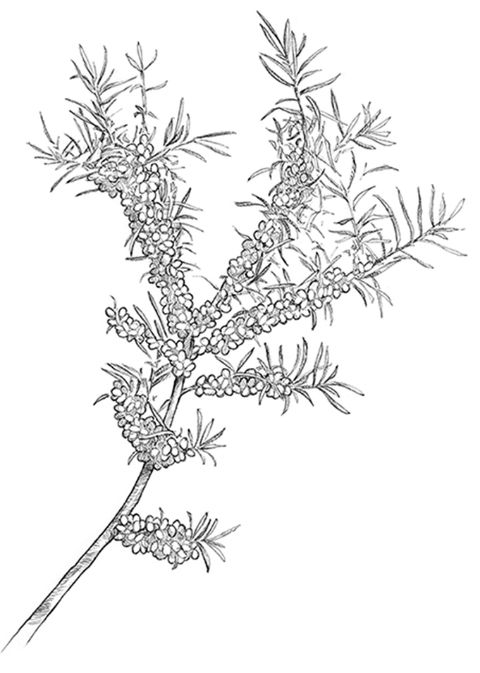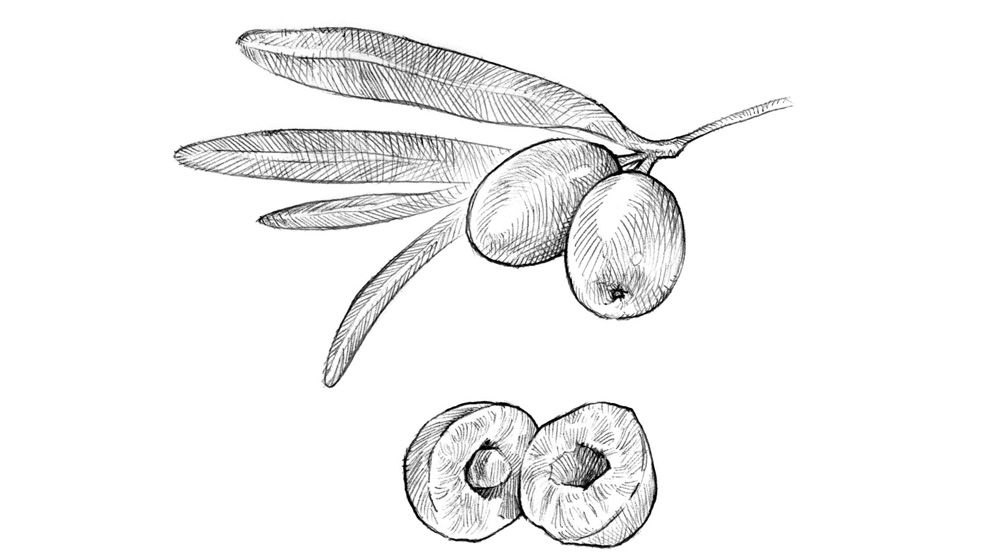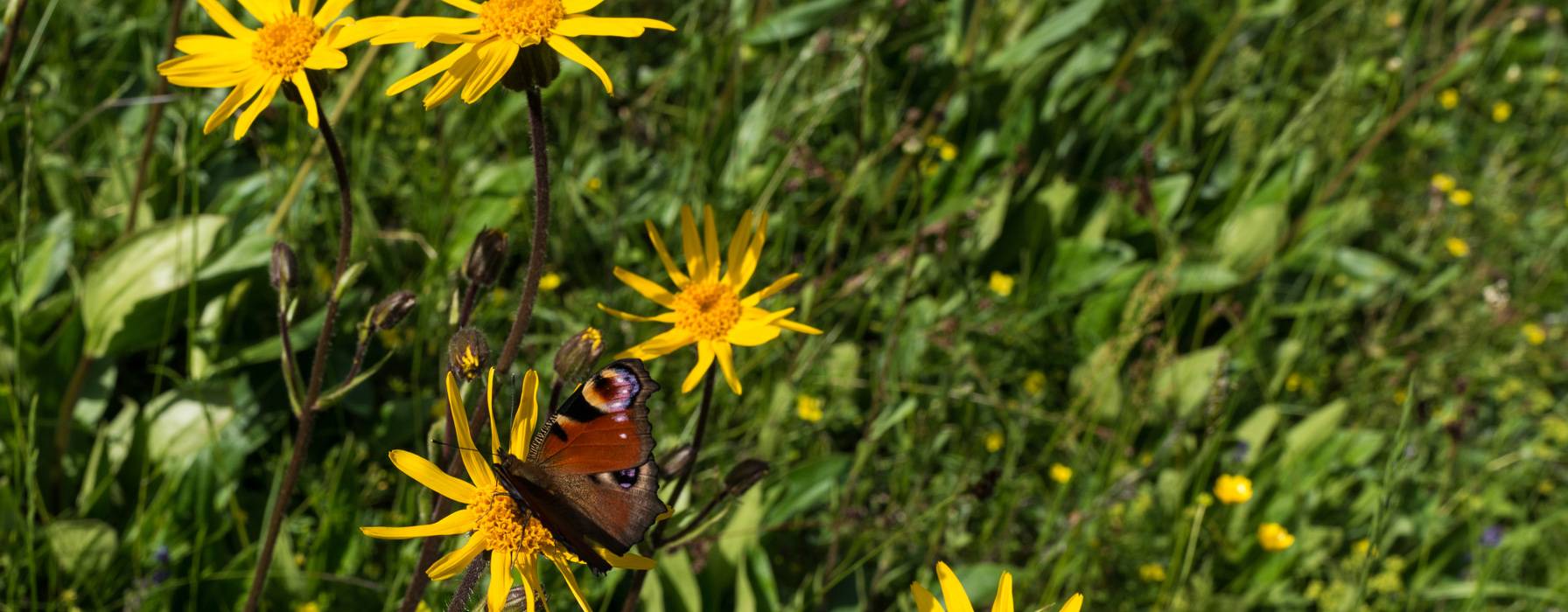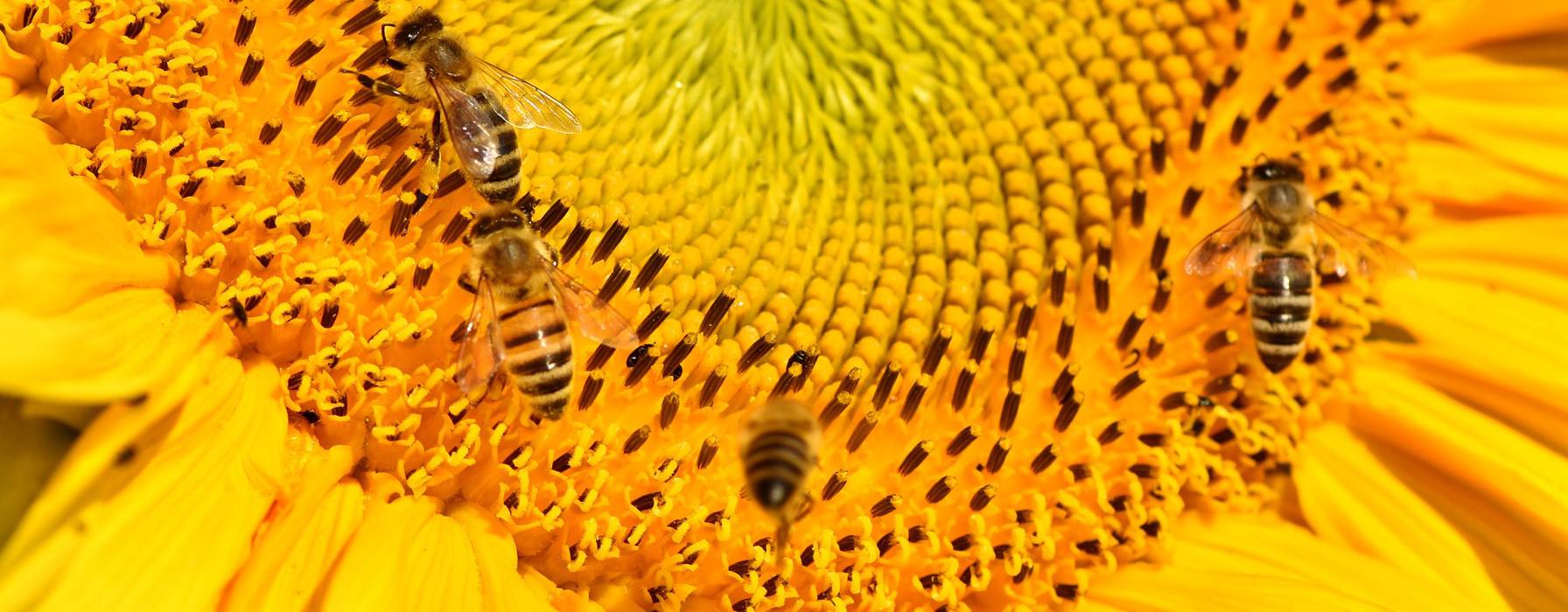Sea buckthorn is one of the few plants to contain precious oil both in its fruit pulp and seeds. It stores water-soluble vitamins as well as fat-soluble vitamins and their precursors. In August, the female sea buckthorn plant begins to produce round or oval berry-like fruits .
Roots and growth
The sea buckthorn is full of vitality. It lives in symbiosis with bacteria present in its root nodules, which fix nitrogen to make it available to the plant. This allows it to thrive even in sandy, nutrient-poor soil. Otherwise all the plant needs for healthy growth are air, water and never-ending amounts of sunlight. With its odd unwieldy form, the shrub can grow up to six metres high, its extensive root system anchoring it firmly in the ground.
Fruits and seeds
Around the beginning of August, the female sea buckthorn plant begins to produce round or oval berry-like fruits 5 to 10 millimetres in length, which contain a nut-like seed. In its green leaves the sea buckthorn collects the radiant light and vitalizing energy of the sun. Sea buckthorn is one of the few plants to contain precious oil both in its fruit pulp and seeds. It stores water-soluble vitamins (such as vitamin C) as well as fat-soluble vitamins (such as vitamin E and carotenoids) and their precursors.
Leaves and berries
The sea buckthorn protects its berries with its pointed leaves and thorns. The slender, shiny green-silver leaves have fine hairs and can vary greatly in length and width depending on the plant variety.





